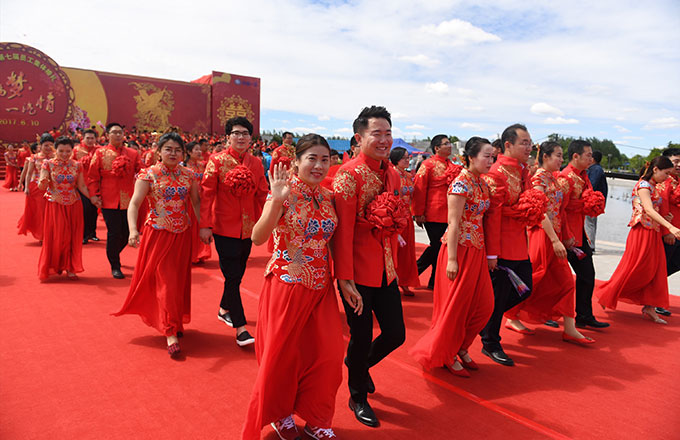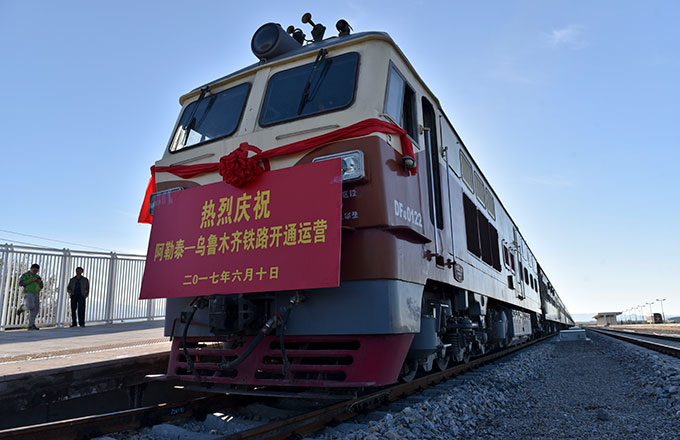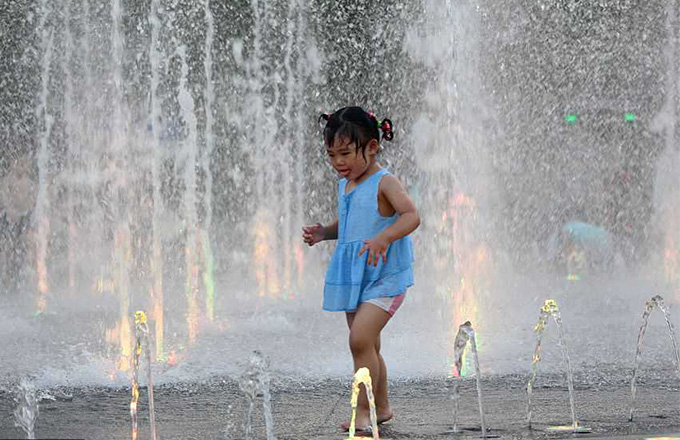Speech at the national conference of the Communist Party of China
September 23, 1985
Comrades,
This National Conference has been a very good one. It has successfully accomplished the scheduled tasks. Now I should like to speak on four points.
First, about the general situation and the reform.
As is clear to everyone, the period of almost seven years since the Third Plenary Session of the Eleventh Central Committee has been a crucial one and one of the best since the founding of the People's Republic. It has not been easy to make it so. We have done mainly two things: we have set wrong things right, and we have launched the comprehensive reform.
For many years we suffered badly from one major error: after the socialist transformation of the ownership of the means of production had been basically accomplished, we still took class struggle as the key link and neglected to develop the productive forces. The "cultural revolution" carried this tendency to the extreme. Since the Third Plenary Session of the Eleventh Central Committee, the Party has shifted the focus of all its work to the drive for socialist modernization and, while adhering to the Four Cardinal Principles, has concentrated on developing the productive forces. That was the most important thing we did to set things right. The good situation we have today would not have come about if we had not thoroughly corrected the "Left" mistakes and resolutely shifted the focus of our work. At the same time, if we had not conscientiously adhered to the four principles, we would not have been able to maintain political stability and unity, and we would even have gone from correcting "Left" mistakes to "correcting" socialism and Marxism-Leninism. And then the good situation we have today would not have come about either.
The issue of reform was already raised at the Third Plenary Session of the Eleventh Central Committee. When the reform first started in the countryside, people said all sorts of things about it. But after three years, when many problems that had arisen in practice had been solved and good results had been achieved, there was more agreement about it. Of course new problems will crop up and have to be tackled. Since the Third Plenary Session of the Twelfth Central Committee, reform has focused on the cities. After years of preparation, and on the basis of the success of the reform in the rural areas, we have gradually undertaken a comprehensive reform of the economic structure. The reform has stimulated the development of the productive forces and has resulted in a series of profound changes in economic life, social life, people's work style and their mentality. This reform is part of the self-perfecting process of the socialist system, and in certain areas and to a certain extent it is also a revolutionary change. It is a major undertaking that shows we have begun to find a way of building socialism with Chinese characteristics.
In the reform we have consistently followed two fundamental principles. One is the predominance of the socialist public sector of the economy; the other is common prosperity. The utilization of foreign investment capital in a planned way and the promotion of a degree of individual economy are both serving the development of the socialist economy as a whole. It is precisely for the purpose of enabling more and more people to become prosperous until all are prosperous that some areas and some people are encouraged to do so first. The living standards of the people, with a few exceptions, have improved to varying degrees. Naturally, some negative phenomena are bound to appear in the process of reform. As long as we face them squarely and take firm steps to deal with them, it will not be difficult to solve these problems.
The all-round reform of our economic structure has just begun. The general orientation and principles are already established, but we still have to work out specific rules and regulations by trial and error. While trying to identify and tackle problems early, we must seize the opportunity of the moment and vigorously explore new possibilities, striving to complete the reform before too long. It is my belief that no matter how many difficulties may arise, anything that is in the fundamental interest of the vast majority of the people and is supported by the masses will succeed.
Second, about the Seventh Five-Year Plan (1986-1990).
The Proposal for the Seventh Five-Year Plan, which has been adopted by this conference, is a good document setting forth correct principles and policies and realistic targets.
It is projected that during the period of the plan the annual growth rate of the total value of industrial and agricultural output will be about 7 per cent, a figure on which the Standing Committee of the Political Bureau has unanimously agreed, and which may be exceeded in practice. That growth rate cannot be considered low. If the growth rate were too high, it would create many problems that would have a negative effect on the reform and on social conduct. It is better to be prudent. We must control the scale of investment in fixed assets and see that capital construction is not over-extended. To guarantee the planned growth rate, we must manage production well, ensure quality, and seek economic and social returns.
The period of the Seventh Five-Year Plan is a very important one. If at the end of these five years the reform has been basically completed and the economy is developing in a sound, steady, balanced way, then we are sure to meet the targets set by the Twelfth National Party Congress for the end of the century.
People are saying that notable changes have taken place in China. I said to some foreign guests recently that these were only small changes. When we have quadrupled the gross value of our annual industrial and agricultural output and are comparatively prosperous, we can say there have been bigger changes. By the middle of the next century, when we approach the level of the developed countries, then there will have been really great changes. At that time the strength of China and its role in the world will be quite different. We shall be able to make greater contributions to mankind.
Third, about a socialist society with an advanced level of culture and ideology.
The question of building a socialist society that is culturally and ideologically advanced was raised long ago. The central and local authorities and the army have done a great deal of work in this regard. In particular, a large number of advanced persons have emerged from among the masses, and that has had a very favourable impact on society. However, considering the country as a whole, we must admit that so far the results of our work are not very satisfactory, mainly because it has not had the serious attention of the entire Party membership. We are working hard to build socialism not only because socialism provides conditions for faster development of the productive forces than capitalism, but also because only socialism can eliminate the greed, corruption and injustice that are inherent in capitalism and other systems of exploitation.
In recent years production has gone up, but the pernicious influence of capitalism and feudalism has not been reduced to a minimum. Instead, some evil things that had long been extinct after liberation have come to life again. We must be determined to change this situation as soon as possible, or how can the advantages of socialism be brought into full play? How can we effectively educate our people, especially the future generations? Material progress will suffer delays and setbacks unless we promote cultural and ethical progress as well. We can never succeed in revolution and construction if we rely on material conditions alone. In the past, no matter how small and weak our Party was, and no matter what difficulties it faced, we always maintained great combat effectiveness thanks to our faith in Marxism and communism. Because we shared common ideals, we had strict discipline. That is our real strength today as it has been in the past and will be in the future. Some comrades no longer have a clear understanding of this truth. So it is hard for them to pay close attention to building a society that is advanced culturally and ethically.
To build such a society we must first concentrate on bringing about a fundamental improvement in Party conduct and in general social conduct.
Improving Party conduct is the key to improving general social conduct. In consolidating the Party we must carry out the decision of the Second Plenary Session of the Twelfth Central Committee and succeed in all four tasks: achieving unity in thinking, improving conduct, strengthening discipline and purifying the Party organization. The Party Constitution contains clear provisions in this regard. Every Party organization must ask its members to measure themselves against each of the articles in the Constitution and to conduct self-criticism and criticism among themselves, and every Party organization must take disciplinary action when necessary. If all Party members set a good example, things will become easier.
The improvement of general social conduct must be accomplished through education, and education must conform to realities. To overcome major ideological weaknesses that are found among some cadres and other people and that affect social conduct, we must carry out in-depth investigations and assign proper people to conduct painstaking and convincing education. Oversimplified, one-sided or arbitrary arguments will not serve the purpose. Also, leading comrades at various levels must constantly explain the practical problems that affect people's everyday lives and the policy issues in which the masses show an interest. They should give facts and tell the people how things stand and what efforts the Party and government are making to solve the problems. In addition, they must act promptly to remedy situations about which the people justly complain. Only when the masses see concrete evidence that the Party and socialism are good will our teachings about ideals, discipline, communist ideology and patriotism be effective.
We must strengthen ideological and political work, reinforce the ranks of cadres in this field and do nothing to weaken them. At the same time, we should continue to guard against and crack down on serious crime and to prohibit all decadent practices that undermine standards of social conduct. In their economic activities and administrative and judicial work, enterprises and institutions must above all seek people's trust. They absolutely must not harm the people or extort money from them.
Ideological, cultural, educational and public health departments should make social benefit the sole criterion for their activities, and so should the enterprises affiliated with them. People engaged in ideological and cultural work should create more fine intellectual products, and the production, importation and circulation of undesirable ones should be resolutely banned. We must firmly oppose propaganda in favour of bourgeois liberalization, that is, in favour of the capitalist road. It goes without saying, however, that we should follow the policy of "letting a hundred flowers blossom and a hundred schools of thought contend" and uphold the freedoms guaranteed by the Constitution and laws of the state. With regard to erroneous ideological tendencies, we should follow the policy of persuasion and education and refrain from political movements and "mass criticism". We must take disciplinary action against those Party members who refuse to correct their errors, but in doing so we must not repeat the "Left" mistakes of resorting to summary measures and subjecting too many people to criticism.
If we accomplish all these tasks, we shall bring about a fundamental improvement in standards of social conduct.
Fourth, about the succession of new cadres to posts held by old ones and about theoretical study.
The process of new cadres succeeding old and cooperating with them has been going fairly well over the past few years. A number of outstanding persons who are in the prime of life and have both ability and political integrity have been promoted to leading posts in both central and local departments of the Party, government and army. A satisfactory job has been done of replacing old members with new ones in the three central leading bodies. As a result, the average age of Central Committee members, in particular, has been significantly reduced. A number of veteran cadres have taken the lead in abolishing the system of life tenure in leading posts, furthering the reform of the cadre system. This deserves special mention in the annals of our Party.
The members newly elected to the Central Committee and the ministers and provincial Party committee secretaries who have been appointed recently are comparatively young. They are generally in their fifties, with some just over forty. In the early days of the People's Republic, many of the ministers and provincial Party committee secretaries were of that age. What is most important for the young and middle-aged cadres when they take over from the old is to emulate their heroic spirit of revolutionary struggle. It is my hope that through your efforts the Party's fine traditions and work style will be carried forward. I once said that youth and professional competence alone are not enough. To this must be added a fine work style. I hope you will serve the people wholeheartedly, go among the masses and listen to their opinions, dare to speak the truth and oppose falsehood, not seek undeserved credit but perform real services, make a clear distinction between public and private interests, refrain from seeking personal favour at the expense of principle and appoint people on their merits rather than by favouritism.
We often say that having new cadres succeed old provides the organizational guarantee for the continuity of our Party's policies. What does this continuity actually mean? It means, of course, the continuity of the domestic and foreign policies of independence, democracy, legality, opening to the outside world and invigorating the domestic economy, policies which we will by no means change. And all these policies are based on the Four Cardinal Principles. There is even less possibility of our changing or deviating from those principles. If we did, our society would be plunged into chaos. Stability and unity would be out of the question, and the construction, reform and rejuvenation of China would become no more than empty words.
Now I should like to propose a new requirement, not only for new cadres but for old ones as well: the study of Marxist theory. Some comrades may say: "We are busy now with construction, and what we need most is professional knowledge and managerial skills. What's the immediate use of studying Marxist theory?" Comrades, this is a misconception. Marxist theory is not a dogma but a guide to action. It calls on people to proceed from its basic principles and methodology and apply them to changing conditions so as to devise solutions to new problems. By this process, Marxist theory itself is further developed. Didn't the Russians succeed in their October Revolution and we in our revolution precisely because we both applied Marxist methods and principles? Times have changed and our tasks have changed. We are now building socialism with Chinese characteristics. There is indeed much new knowledge we need to master, but that makes it all the more necessary for us to study basic Marxist theory in light of the new situation. Because that is the only way we can become better able to apply the basic principles and methods of Marxism to the solution of the fundamental questions arising in the political, economic, social and cultural fields. And that is the only way we can advance both our cause and the theory of Marxism and also prevent comrades, particularly the newly promoted young and middle-aged comrades, from losing their bearings in the increasingly complex struggle. I therefore hope that the Central Committee will formulate a workable decision that will enable Party cadres at all levels, but especially leading cadres, to have some time in their busy schedules for study. That will enable them to become well versed in basic Marxist theory, and thus they will adhere more strictly to principles and work more systematically and with greater foresight and creativity. Only thus can our Party keep to the socialist road and go on building socialism with Chinese characteristics until we reach our ultimate goal -- communism.
(From Selected Works of Deng Xiaoping, Volume III <1982-1992>)
- China issues guidelines to develop 'all-for-one' tourism demonstration zones
- Torrential rain triggers disaster in Southwest China
- Harvest time for wheat reapers in Shanxi
- Over 200 couples marry in Changchun group wedding
- Calligraphy tops other icons of Chinese culture, WeChat data shows



















